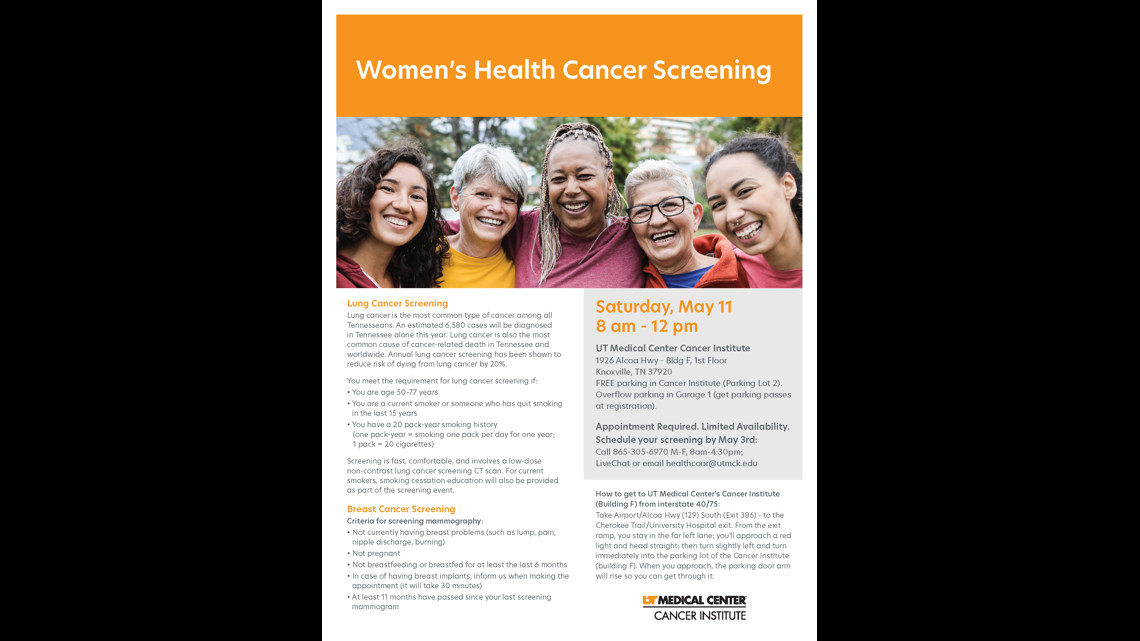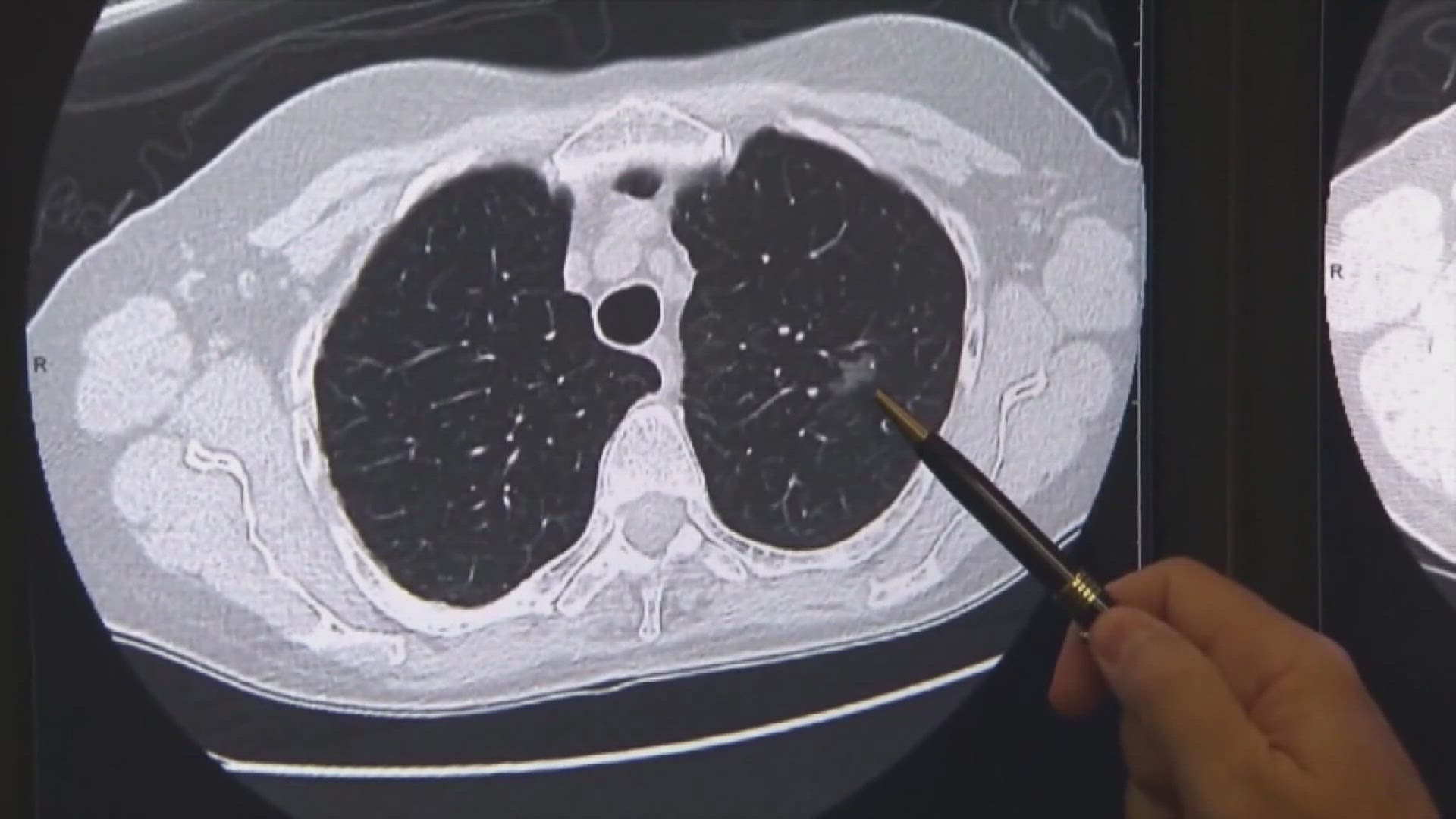KNOXVILLE, Tenn. — A hospital in East Tennessee is leading the way against one of the most common types of deadly cancer. The University of Tennessee Medical Center said lung cancer claims more lives in the state than any other cancer.
In recent years, the Food and Drug Administration approved a drug that lights up cancer cells during ovarian and lung cancer surgeries. Now, it's being used at UT Medical Center.
Cytalux is a drug that combines two molecules — folate and ICG. ICG lights up cancer cells and helps doctors find them. It's given to patients through an infusion.
"The cancer itself will take up the folates," said Dr. Sean Jordan, an associate professor of Thoracic Surgery. "And then the ICG is something that we use in surgery that we actually pick up with a special camera that we have. And so by combining those two together, we can actually see the cancer in real-time with our camera."
UT Medical Center was the first in the state, and across the South, to use Cytalux during surgery.
"Somebody has to be the leadoff hitter, right?," said Jeff Cooper, the first patient to get Cytalux. "Dr. Jordan mentioned that I would be and I thought, 'Well, that's pretty cool'."
Cooper had esophageal cancer, it came back in his lung. Jordan said this medication helps save the healthy part of someone's lung.
"He might have needed a lobectomy, he might have needed additional procedures such as a bronchoscopy or a wire stuck in his chest to help us help us find his area of cancer," said Jordan. "But with this drug, we're able to see the cancer in real-time and remove it, and spare the rest of his lung, basically."
Jeff said the procedure was less invasive than others he's experienced.
"This was very mild, there were three little incisions on the right-hand side," said Jeff. "And that was it. And the first surgery was very intense. I've had my stuff going on. My stomach was open here and just I had had more tubes coming out in me than I ever expected I'd have, but anyway, I've got some of the little scars to tell about it."
He said his surgery was in March, and he's feeling good. He is in his second week of physical therapy, going three times a week.
"The first day when I got home, I didn't go for a walk, I just took it easy. Next morning, I got up. I have a dog and we walk every day. And we did our full route and took a leisurely walk. And it's been just kind of a gradual build-up. I know my limitations. And basically, if I know I'm doing a little too much, or whatever, I'll back down a little bit," he said.
Jeff said it's important for people to get screened and said people should talk to their doctors if anything feels off.
"If you've got any suspicion, you know, call your doctor," said Jeff. "Call your doctor, say, 'I need a test or something's not right. I'm not feeling good.' Definitely do it."
He credits his great support system with helping him through it.
"I want to thank my wife," said Jeff. "But, yeah, it's been a good journey. Not one that you should go on, but you know, jump on the bandwagon and go for it. And I appreciate all the help."
Screenings are key to prevention and treatment. That includes smokers between the ages of 50 and 77, and even former smokers who stopped in the last 15 years.
UT Medical Center is holding a women's cancer screening event on Saturday, May 11, from 8 a.m. to 12 p.m. There will be screenings for lung and breast cancer.
People should schedule screenings at that event by May 8 by calling 865-305-6970 or by emailing healthcoor@utmck.edu.



